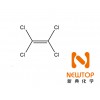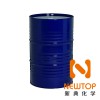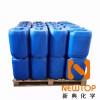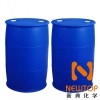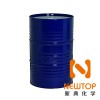Overview:
Chinese name: N-Ethylmorpholine
Alias: Dabco NEM, Niax NEM, Jeffcat NEM, Lupragen N104, PC CAT NEM, N-ethylmorpholine, ethylmorpholine
English name: N-ethylmorpholine, 4-Ethylmorpholine; ethylmorpholine; N-Ethyl morpholine; 4-ethylmorpholin-4-ium
Molecular formula: C6H13NO
Relative molecular mass: 115.2
CAS No.: 100-74-3
Dabco NEM Niax NEM Jeffcat NEM Lupragen N104 PC CAT NEM N-Ethyl morpholine Ethyl morpholine
Physical and chemical properties
N-Ethylmorpholine is a colorless and transparent liquid in normal state.
Density (20℃): 0.92g/cm3
Viscosity (23℃): 2.3mPa.s
Water solubility: soluble in water
Flash point (TCC): 32℃;
Hydroxyl value: no data
Freezing point -63℃
Boiling point 139.2℃
Melting point:-63℃
Relative density 0.916(20/20℃)
Refractive index 1.4415
Flash point 27℃
Preparation method
Obtained by the reaction of morpholine with bromoethane:
Add morpholine to bromoethane slowly under stirring and cooling, and control the reaction temperature below 70℃. After charging, reflux the reaction for 6 hours. After recovering bromoethane, cool and neutralize with 50% sodium hydroxide solution to strong basicity. The oil layer is separated, the aqueous layer is extracted with ether, the extract is incorporated into the oil layer, the ether is recovered, dried with anhydrous sodium carbonate and then subjected to atmospheric pressure fractionation to obtain N-ethylmorpholine.
Applications
N-Ethylmorpholine is a medium strength tertiary amine catalyst, mainly used as a soft polyurethane foam catalyst of polyester type in polyurethane industry, with good epidermis formation performance and strong catalytic effect on gel reaction even after the foam rises to a high point, making the bubble pores expand to a large extent.
Uses:
Used as a solvent, also used in organic synthesis. It is used as solvent of oil and resin, and also used as intermediate of organic synthesis. It is soluble in water, alcohol and ether, and can be used as solvent, catalyst, intermediate of dyestuff, medicine and surfactant, and also used to produce preservative, emulsifier and paint.

Package
Packed in clean, dry, sealed and leak-free special plastic drums with a net weight of 20kg/25kg/180kg per drum.
Storage and transportation
When transporting Catalyst, it should be strictly protected from rain and staining, carefully and gently stored to prevent leakage from collision with hard objects. When storing Catalyst, it should be stored at room temperature in a ventilated and dry warehouse, avoiding humid environment, and the storage temperature should be kept below 25℃, avoiding sunlight as much as possible, and away from water and heat sources. To prevent moisture absorption and oxidation, it is recommended to fill the container with nitrogen.
Shelf life
Under proper storage conditions, the shelf life is 6 months from the date of manufacture, after which the product can be used after retesting.
Safety Information
Catalyst is somewhat toxic and should be rinsed with soapy water promptly after contact with skin. Staff can wear eye protection or safety glasses for the purpose of eye protection. Eye wash and drenching equipment should be provided near the workplace. When working in places where contact with the product is possible, attention should be paid to personal hygiene and the skin in contact with the product should be washed with washing products before eating, smoking and leaving the workplace.
Leak handling
Stop spills as much as possible while ensuring safety. If a minor spill is found, treat it with sand or other absorbent material and place it in a clean, dry container for subsequent disposal. If a large spill occurs, the spilled material should be collected for subsequent disposal. Avoid entering groundwater or surface water as the material is not readily biodegradable. All collected spilled material should be disposed of in accordance with local environmental regulations.
Disclaimers
The information and technical advice provided above has been obtained from our reliable sources, however, we make no express or implied warranties with respect to the data provided and make no promises herein. If our products are to be used, we recommend that they undergo a series of tests. The application, use, processing or production of products based on the technical information provided by us is beyond our control and therefore these responsibilities are the responsibility of the user. The condition and method of handling, storage, use or disposal of this product is beyond our control and may be beyond our knowledge, and in no event will we be liable for loss, damage or costs associated with the improper handling, storage, use or disposal of this chemical. For more information, please review the technical safety sheets for our products or contact our marketing services department.
Uses:
Promotes the reaction of hydroxyl functional groups with NCO
Safety Information:
Catalyst is somewhat toxic and should be rinsed promptly with soapy water after contact with skin. Staff may wear eye protection or safety glasses for eye protection purposes. Eye wash and drenching equipment should be provided near the workplace. When working in places where contact with the product is possible, attention should be paid to personal hygiene and the skin in contact with the product should be washed with washing products before eating, smoking and leaving the workplace.
Shelf life.
Keep unopened,two years
Storage and transportation:
Should be kept sealed and stored in a dry, cool and ventilated warehouse
Packaging:
200KG/drum Storage: It is recommended to store in dry and cool area with proper ventilation. Please fasten the lid as soon as possible after the original packaging to prevent the mixing of other substances such as water and other substances from affecting the product performance. Do not inhale dust and avoid skin and mucous membrane contact. Smoking, eating and drinking are prohibited in the workplace. After work, shower and change clothes. Store contaminated clothes separately and wash them before use. Maintain good hygiene habits.
Technical support and business contacts E-mail:info@newtopchem.com






